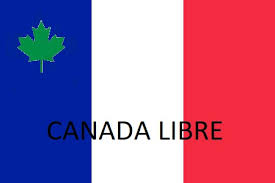MAJOR RESET IN THE MIDDLE EAST
Something
important is brewing in the Middle East.
The
recent meetings between the current President of China and the future King of
Saudi Arabia are only the tip of the iceberg. They're official and symbolic
events, full of rituals and usually devoid of surprises, but they're also the
result of something much deeper, something that may well have a bearing on the long-term
future of the region. They're a manifestation of the tectonic plates of the
whole Middle East, shifting and realigning under the force of economic and
political currents.
Officially,
the countries of the region want to steer a difficult course, staying close to
the United States, while considering the interests of a growing colossus,
China. That country wishes to be more present and to have a footprint that fit
its increasing influence. For instance, the Chinese President want to continue
chipping away at the hegemony of the US dollar. He also wants to be seen as a
dealmaker in world affairs. In that regard, it certainly helps that China's
position on the Palestinian question and the two states formula is more
palatable than the Israel First policy pursued by ex-president Trump. The
Middle East leaders couldn't have failed to notice that the current US
President never found the time to reverse his predecessors' decisions...
Officiously,
it may mark the end of a long era of American hegemony in the Middle East, in
place since World War II. It may also mark an important change in China's
relationship with Black Africa. Better relations with Arabic-speaking countries
will facilitate China's access to the growing population of resources-rich
Africa. I may lead to the creation of commercial routes between North-West
China and Black Africa, through the all-important, very strategic Sinai
Peninsula.
For the
moment, most of China's trade is ship-borne, whether it is to Europe, Africa or
America. In the case of the trade between China and the US, it should continue
to be maritime, for evident geographical reasons. The US west coast is just
across the Pacific from the north-south range of gigantic Chinese ports that
dot that country's seaboard.
In the
case of Europe and Africa, though, things are not the same, since land
transport corridors can eventually be created all over the three continents of
Asia, Africa and Europe. If, in the last decades, trade was mainly maritime
between those nodes, it simply was because ships were a simpler solution on the
short-term.
Moving
huge amounts of freight on land requires special infrastructure (railroads,
freeways, bridges, etc.) and large investments. On continents with many
countries, it is also necessary to identify land corridors that can be safely
used for a long time, maybe decades, and that are subject to the regulations of
those many countries. All that takes time, but it's usually worth the trouble,
cost-wise, since land transport is most often cheaper and faster than sea
transport.
It is
possible to establish a corridor between China and Western Europe along that
general axis: Chungking / Gansou / Sinkiang / Kazakhstan / Russia / Byelorussia
/ Poland / Germany / France. It must be said that the continuing war in Ukraine
will probably have an impact on the precise course of that corridor. In the
case of Black Africa, a corridor may also be created along that very general
axis: Chungking / Gansou / Sinkiang / Central Asia / Iran / Irak / Saudi Arabia
/ Egypt. After the Sinai Peninsula bottleneck, a branch can go up the Nile
Valley, while another one follows the Mediterranean coastline to Morocco, with
a number of sublines going south through the Sahara.
Then,
the three-continents formed by Asia, Africa and Europe with be covered and
united with a transport network that will gradually help create an economic
giant. The XIXth century was Britain's, and the XXth was America's. It is more
and more likely that the present century, the XXIth, will belong to China.
History never stand still.
* * *
Text based on series of twits published December 10, 2022, as comments about two articles: https://www.cnn.com/2022/12/09/business/port-los-angeles-new-york-supply-chain/index.html and https://www.foxbusiness.com/energy/china-calls-oil-trade-yuan-gulf-summit-in- saudi-arabia




Commentaires
Enregistrer un commentaire
Bonjour, tous les commentaires sont acceptés, dans la mesure où ils sont d'ordre professionnel. Insulteurs s'abstenir...